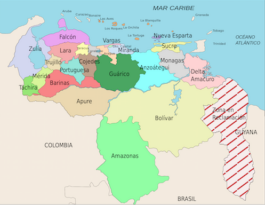Before the 1990s, measles was a major cause of infant mortality in Brazil, along with its central and south American neighbours. The country faced epidemics every two years: in 1991, Brazil registered 61,400 measles cases, resulting in 475 deaths.
Highlights
- Measles elimination programmes began in 1992
- Number of cases fell dramatically, leading to ‘measles free’ status
- Outbreaks in Venezuela spilling over into northern Brazil
- Measles is highly infectious and can spread across borders
- Experience highlights need for constant vigilance
Brazil’s National Immunization Program (PNI) was created in 1973. In 1992, a National Measles Elimination Plan was introduced for children under 15 years of age, during which more than 47 million people of age between 9 months and 14 years were vaccinated in just over a month, resulting in 96% vaccine coverage.
The impact of this important action was immediate and resulted in an 81% reduction in the number of cases of the disease across the country.
 Our path to the elimination of measles had begun.
Our path to the elimination of measles had begun.
In October 1999, there were 618 cases of measles and no deaths. In 2000, the last outbreak of measles occurred with 15 confirmed cases.
Thanks to surveillance, laboratory and immunisation actions, in 2016, Brazil received the certificate of elimination of the circulation of the measles virus by the WHO – the region of the Americas was declared free of the disease.
An outbreak of 916 cases, caused by an imported virus, was limited to the states of Pernambuco and Ceará – thanks to high levels of coverage elsewhere in Brazil.
Since then, no cases were recorded until, in January 2018, cases imported from neighbouring Venezuela triggered major outbreaks in two Brazilian states where vaccine coverage was well below the required 95%.
Venezuela borders northern Brazil
 In February 2018, the Health Department of the State of Roraima notified the Ministry of Health of the first suspected case of measles in the municipality of Boa Vista: a Venezuelan child who had not been vaccinated.
In February 2018, the Health Department of the State of Roraima notified the Ministry of Health of the first suspected case of measles in the municipality of Boa Vista: a Venezuelan child who had not been vaccinated.
By mid-September, in Roraima, 472 suspected cases of measles were reported, of which 301 were confirmed. Many of the cases were caused by the same type of measles virus as the one responsible for outbreaks in Venezuela.
Among the confirmed cases, 66.1% are Venezuelans, 33.2% are Brazilians and 0.6% are from Guyana and Argentina. Among Brazilians, 55% of the cases occurred among children from six months to four years of age.

‘Measles free’ status at risk
The elimination of measles in our country and in the Americas is at risk. The presence of the measles virus in our territory reinforces the need for efforts towards active epidemiological surveillance and prevention through immunisation of children, adolescents and adults.
The National Immunisation Programme has built on a series of policies that began as long ago as 1832, when the first mandatory vaccination legislation was established in the country. Since then, Brazil has managed to eradicate smallpox (1971), poliomyelitis (1989) measles (2016) and maternal and neonatal tetanus (2017). Controlling these diseases is an emphatic indicator of the country’s development but we recent experience shows that nothing can be taken for granted.
Progress in retreat?
The current situation is cause for concern. The sense of security generated by the disappearance of diseases has bred complacency. Add to that the wave of false news and the need for proactive online engagement is clear.
In 2015, the Brazilian Society of Immunizations rolled out the Vaccine and Protection for All initiative. This led to the launch of the SBIm Family website, a kind of online encyclopaedia that gathers information on vaccine-preventable diseases, vaccines and the results of vaccination. The website is a member of the WHO Vaccine Safety Net – a network of immunisation websites [of which Vaccines Today is also a member].
The current measles outbreak serves as a warning: changes are needed if the country is to avoid going back in time. We must work to develop communication strategies adapted to times we live in.
Isabella Ballalai is President of the Brazilian Society for Immunization




